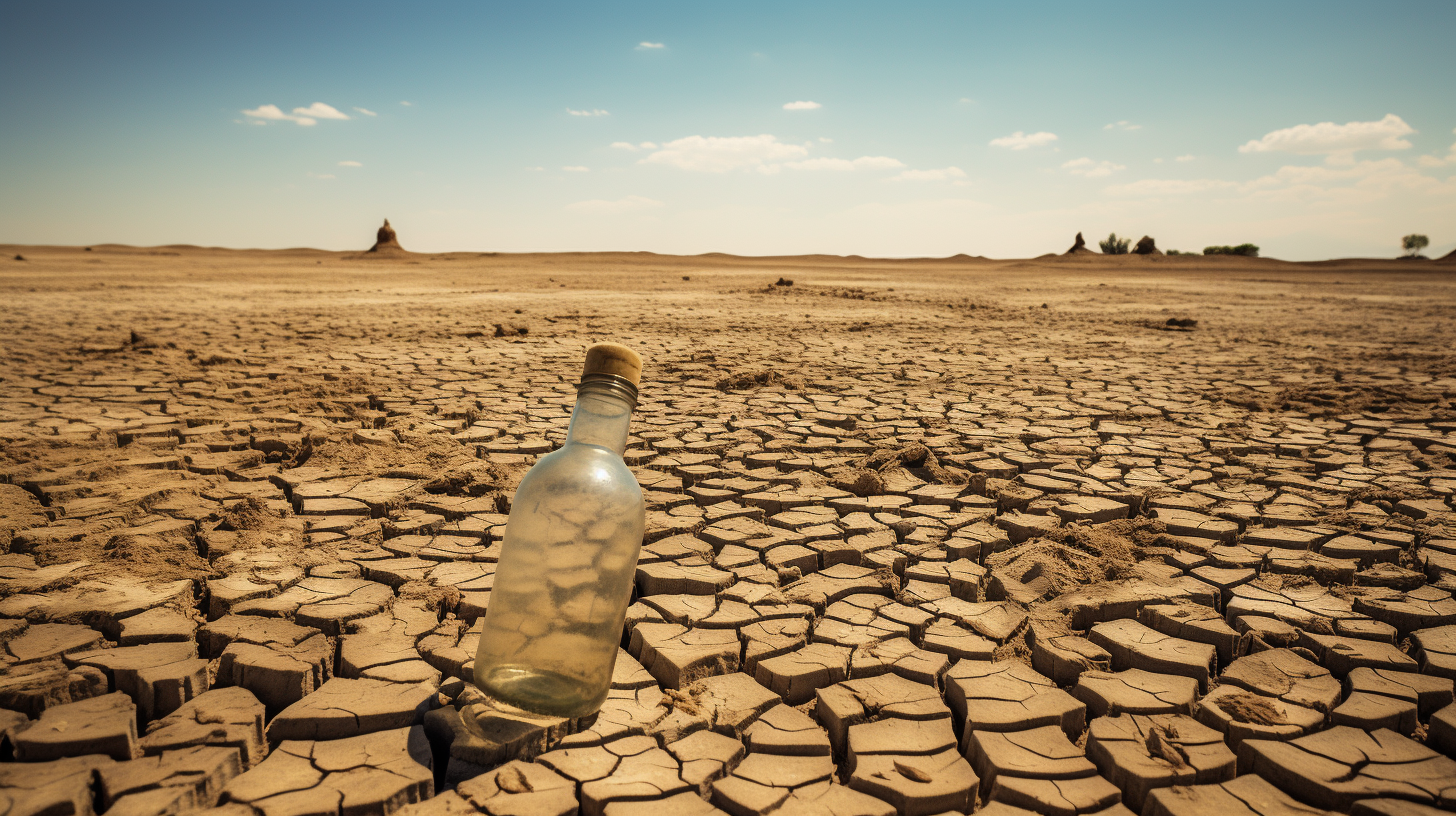In the poignant narrative of survival, Infinite Thirst – Surviving the World’s Last Drought, we navigate through ravaged landscapes where aridity has clutched the earth in a perpetual embrace. One might find it hard to visualize a world where the symphony of flowing rivers has been replaced by the hollow echoes of parched riverbeds. Yet, here we are, whispering the dirge for the wet sanctuaries that birthed civilizations.
Contrary to the aquatic bounties our ancestors once celebrated, today’s humanity claws for the last drops of a dying planet’s essence. Every gulp of water is a contested trophy, a luxury so rare, it’s only whispered in the dusty corners of crumbling societies.
Groundwater? Siphoned to nullity. Reservoirs? Morose pits of cracked clay. And the rains? Merely a myth, fading into the annals of a greener history. We’ve tilled every narrative for solutions, cleaving to the ghost of ingenuity that birthed dew-harvesters and artificial rain. Yet, the heart of our crisis beats on, unfaltering in its finality.
In survivor enclaves, water is currency, sluicing through the fingers of barterers more precious than the shiniest coin. Desalination plants have risen as monoliths of our desperation, yet the bitter irony of energy costs makes them altars where hope is both born and sacrificed.
‘To thirst is to be alive,‘ remarks a wanderer, her lips chapped beneath a scavenger’s hood. Pockets of rebellion do exist, from roving bands reclaiming dew from the clenched fist of dawn to biotech dreamers hacking life into semi-permeable membranes that might one day weep water from the arid air.
Breakthroughs in air-to-water generation paint strokes of innovation across this stark canvas. Like fables, stories swirl about air farms that float on winds, extracting humidity as if they were wringing life from the gales themselves. Yet these stories are mere drops in an ocean of need.
Our meals have been rewritten, not by chefs, but by necessity. With no water to nurture our tables, we’ve turned to the skies, farming algae and cultivating insects, which demand less of the world’s blue veins. Restaurants serve dishes that echo the dust outside, textured so the forgotten sensation of moisture lingers on the palate. But for every novel dish, another childhood meal turns to folklore.
Migration has reshaped our cities and spirits. Families scour the earth like roots seeking moisture, their belongings strapped to their backs. They move towards urban mirages that promise the comforts of water, only to find themselves tethered to the urban machine, another gear in the desalination engines. They trade toil for sips, a balance most precarious.
And yet, in the broken whispers of thirst, music has evolved. They say necessity is the mother of invention, and from necessity’s desperation stems a symphony of desiccation. Instruments now resonate with a timbre that carries the weight of aridity, every note plucked is a droplet remembered, a culture’s defiance vibrantly sung into the drought’s hollow chest.
As we recount the tales of these present-day mirages, the streams of humanity fighting for survival, we must confront an unsettling truth: this is not fiction. This is a prelude, a caution from the precipice. Will we listen to the land’s parched poltergeists, or will we drown in denial’s drought?
This narrative isn’t one woven from threads of hope or restoration. Instead, it serves as testament and reminder, a harbinger’s note that thirst, once infinite, leaves not even hope unshrivelled. With each arid breath, we’re called not to a tale of success but to a myth of survival, praying to gods of rain that have long been silent.
